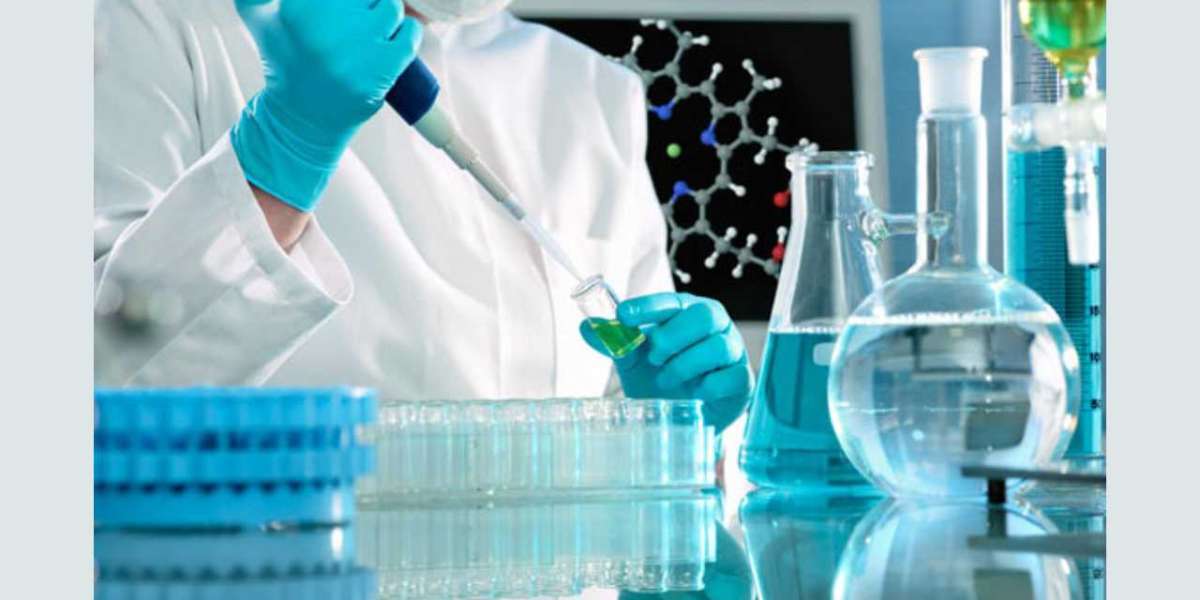NABL Accredited Laboratories: Ensuring Quality Precision in Testing
In today’s fast-paced world, reliable and accurate testing services are crucial. Whether it's in healthcare, pharmaceuticals, food safety, or environmental analysis, laboratories play a vital role in ensuring quality and compliance. Among these, NABL accredited laboratories stand out for their adherence to international standards and rigorous quality assurance.
What is NABL Accreditation?
Understanding NABL and Its Importance
The National Accreditation Board for Testing and Calibration Laboratories (NABL) is an autonomous body under the Quality Council of India (QCI). It provides accreditation to laboratories that meet internationally recognized standards, ensuring that their testing procedures and results are reliable, precise, and globally accepted.
Why is NABL Accreditation Important?
- Assurance of Quality: NABL accreditation guarantees that a laboratory follows standard operating procedures and maintains high testing accuracy.
- Global Recognition: Accredited laboratories comply with ISO/IEC 17025 standards, making their test reports internationally valid.
- Regulatory Compliance: Many industries require test reports from accredited labs for compliance with government regulations.
- Customer Confidence: Businesses and individuals trust NABL-accredited labs for authentic and reliable results.
Key Sectors Benefiting from NABL Accredited Labs
1. Healthcare and Medical Testing
Medical diagnostic laboratories rely on NABL accreditation to ensure precise and accurate patient test results. Accredited labs follow stringent quality control measures in pathology, microbiology, and molecular diagnostics.
2. Pharmaceutical Testing
Drug manufacturers depend on accredited laboratories for raw material testing, stability studies, and finished product analysis to meet national and international regulatory requirements.
3. Environmental Testing
NABL-accredited environmental labs analyze air, water, and soil samples for pollutants, ensuring compliance with environmental safety regulations.
4. Food and Beverage Industry
Food safety is paramount, and accredited labs test for contaminants, nutritional content, and microbiological safety in food products.
5. Engineering and Calibration Services
Manufacturing industries use NABL-accredited calibration labs to ensure the accuracy of measuring instruments, preventing errors in production and quality control.
How Laboratories Obtain NABL Accreditation
Step 1: Application Process
Labs interested in accreditation must submit an application to NABL with details about their scope of testing and quality management systems.
Step 2: Assessment and Evaluation
A team of NABL assessors evaluates the lab’s infrastructure, equipment, staff competency, and adherence to testing protocols.
Step 3: Compliance and Corrective Actions
If any non-conformities are found, the laboratory must implement corrective actions to meet NABL’s standards.
Step 4: Accreditation Approval
Once all requirements are met, NABL grants accreditation, which remains valid for a specified period, subject to periodic audits.
Advantages of Choosing NABL Accredited Labs
1. Accuracy and Reliability
Accredited labs follow stringent guidelines, ensuring high accuracy in test results.
2. Compliance with International Standards
These laboratories meet ISO/IEC 17025 standards, making their test reports accepted globally.
3. Faster Turnaround Time
Well-equipped NABL-accredited labs provide faster and more efficient testing services.
4. Competitive Edge for Businesses
Organizations using accredited labs for quality control can gain a competitive advantage in the market.
Challenges in Maintaining NABL Accreditation
1. Cost of Accreditation
Setting up an NABL-accredited lab requires significant investment in equipment, staff training, and quality management systems.
2. Regular Audits and Compliance
Labs must undergo periodic assessments to maintain their accreditation status, ensuring continuous compliance with quality standards.
3. Technological Advancements
Keeping up with new testing technologies and methodologies is essential for staying accredited and relevant in the industry.
Conclusion
NABL accredited laboratories play a crucial role in maintaining the highest standards of testing across various industries. Whether in healthcare, food safety, environmental monitoring, or manufacturing, these labs provide reliable and accurate results, ensuring compliance and quality. As businesses and individuals continue to prioritize accuracy in testing, NABL-accredited labs remain a trusted choice for dependable analytical services.
Frequently Asked Questions (FAQs)
1. What is the purpose of laboratory accreditation?
Laboratory accreditation ensures that testing and calibration services meet international quality standards, providing accurate and reliable results.
2. How does NABL accreditation differ from ISO certification?
NABL accreditation focuses specifically on the technical competence of laboratories, whereas ISO certification covers broader quality management aspects of an organization.
3. Is NABL accreditation mandatory for all laboratories?
No, NABL accreditation is not mandatory, but it is highly recommended for laboratories seeking recognition for their testing accuracy and reliability.
4. How long does it take to obtain NABL accreditation?
The accreditation process can take several months, depending on the laboratory’s preparedness and compliance with NABL standards.
5. How often do NABL-accredited labs undergo audits?
NABL conducts periodic surveillance audits to ensure that accredited labs continue to meet the required quality standards.
6. What types of laboratories can apply for NABL accreditation?
Testing, calibration, and medical laboratories across various industries, including healthcare, pharmaceuticals, food safety, and environmental analysis, can apply for accreditation.
7. Can a laboratory lose its NABL accreditation?
Yes, if a laboratory fails to comply with NABL requirements or does not pass periodic audits, it may lose its accreditation status.
8. What are the costs associated with NABL accreditation?
The costs vary depending on the laboratory’s size, scope of testing, infrastructure, and required assessments.
9. How can customers verify if a lab is NABL accredited?
Customers can check NABL’s official website for a list of accredited laboratories or request the accreditation certificate from the lab.
10. Does NABL accreditation improve a laboratory’s credibility?
Yes, NABL accreditation enhances a lab’s credibility by demonstrating its commitment to quality, accuracy, and adherence to international testing standards.




